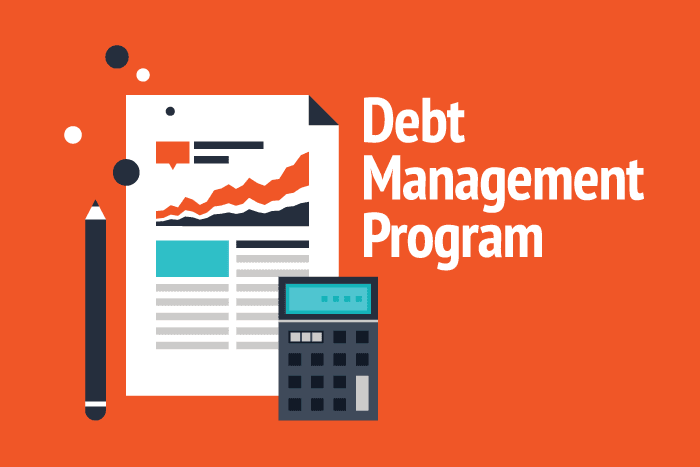Just How Debt Management Plan Services Give Tailored Solutions for Financial Health
Professional Tips and Strategies for Applying a Successful Debt Monitoring Plan
When it comes to navigating the complexities of debt management, having a well-balanced plan is critical for accomplishing economic stability. Applying specialist ideas and techniques can make a substantial difference in your trip towards financial obligation alleviation. From analyzing your present financial standing to bargaining with creditors, each step plays a crucial role fit an effective financial debt administration strategy. By understanding the complexities of financial debt management and embracing tried and tested approaches, people can lead the way for a more safe and secure financial future.
Assessing Your Current Financial Situation
Before embarking on a financial obligation management plan, it is crucial to thoroughly evaluate your existing monetary standing. Understanding your economic circumstance is the fundamental step towards effectively taking care of and lowering your financial obligation. Begin by compiling a comprehensive list of all your financial debts, consisting of exceptional equilibriums, rates of interest, and minimal monthly settlements. This will provide a clear review of the degree of your financial commitments. Furthermore, evaluate your revenue resources and regular monthly expenses to establish your disposable income readily available for debt settlement.

Developing a Realistic Budget Plan
Recognizing your existing economic situation lays the groundwork for establishing a sensible spending plan that straightens with your debt management goals and monetary capacities. When developing a budget, it's essential to precisely track your earnings, costs, and financial obligation commitments. Beginning by detailing all sources of earnings, including earnings, bonuses, and any additional earnings. Next off, detail your dealt with expenditures such as lease or mortgage payments, utilities, insurance, and lending payments. Variable costs like grocery stores, entertainment, and transportation must also be accounted for. By categorizing your expenditures, you can determine areas where you may require to reduce to release up funds for financial debt payment.

Focusing On and Dealing With Financial Obligations
To properly reclaim control of your funds and job in the direction of economic security, focusing on and tackling your financial debts is an essential step in your debt management plan. Start by listing all your debts, including charge card, finances, and any kind of other outstanding equilibriums. Recognize high-interest financial debts that are costing you one of the most money and prioritize paying them off initially. By concentrating on these high-interest financial obligations, you can save cash in the lengthy run and reduce the complete quantity you owe.
After determining your high-interest financial debts, think about utilizing approaches like the debt snowball or financial debt avalanche method to pay them off systematically. The financial obligation snowball technique entails paying off the tiniest debts first, while the financial obligation avalanche technique focuses on financial obligations with the greatest rates of interest. Select the technique that straightens finest with your economic objectives and motivates you to keep making progression.
Additionally, think about bargaining with creditors for lower rate of interest rates or establishing a settlement plan if you're battling to fulfill your existing review commitments. Seeking assistance from a credit therapist or monetary advisor can also supply important insights and advice on exactly how to successfully tackle your debts - debt management plan services. By focusing on and addressing your financial debts purposefully, you can lead the way towards a debt-free future and boosted economic health
Negotiating With Creditors
When taking part in financial debt administration, bargaining with creditors is a vital step in the direction of finding equally valuable remedies for debt payment. Open interaction with creditors can bring about modified layaway plan, reduced rate of interest, and even negotiation deals. Prior to launching settlements, it is vital to have a clear understanding of your click resources monetary situation, including your revenue, costs, and the overall amount of financial obligation owed. This info will certainly not only assist you make sensible deals yet additionally demonstrate to creditors that you are committed to dealing with the financial debt.

Building Healthy Financial Practices
Incorporating regular budgeting techniques is important for cultivating healthy financial practices. Budgeting allows individuals to track their revenue and expenses, enabling them to make informed decisions about their financial top priorities. Establishing particular monetary goals, such as conserving for emergencies or retirement, can offer a clear roadmap for handling cash successfully.
An additional secret facet of building healthy and balanced economic practices is living within one's ways. This involves spending less than what is earned and preventing unneeded financial obligation. Adopting a thrifty state of mind and identifying between demands and wants can aid individuals make more prudent investing selections.
On a regular basis examining economic statements and keeping an eye on credit score records are important behaviors that promote monetary awareness and responsibility. By remaining informed regarding their economic standing, individuals can identify possible problems beforehand and take proactive site steps to address them.
Furthermore, establishing a cost savings habit, despite having percentages, can contribute significantly to long-term monetary safety. Saving regularly not only builds a financial padding for unanticipated expenditures yet likewise fosters a feeling of technique and obligation towards finance. By regularly exercising these behaviors, people can lay a solid structure for a stable economic future.
Conclusion
To conclude, implementing an effective financial obligation administration strategy needs a thorough assessment of one's economic scenario, the advancement of a sensible spending plan, focusing on and dealing with financial obligations, working out with lenders, and structure healthy monetary routines (debt management plan services). By adhering to these expert pointers and strategies, people can take control of their finances and work in the direction of accomplishing financial stability and liberty from financial obligation
Understanding your existing financial scenario lays the foundation for establishing a realistic budget plan that straightens with your debt administration objectives and economic capacities.To efficiently reclaim control of your finances and work towards monetary security, focusing on and tackling your financial debts is a vital action in your financial debt management plan.After determining your high-interest financial debts, take into consideration making use of strategies like the debt snowball or debt avalanche method to pay them off systematically. The debt snowball method entails paying off the tiniest financial debts initially, while the financial obligation avalanche technique prioritizes financial obligations with the greatest rate of interest rates.When engaging in financial debt monitoring, bargaining with financial institutions is an essential action in the direction of discovering mutually advantageous services for debt repayment.